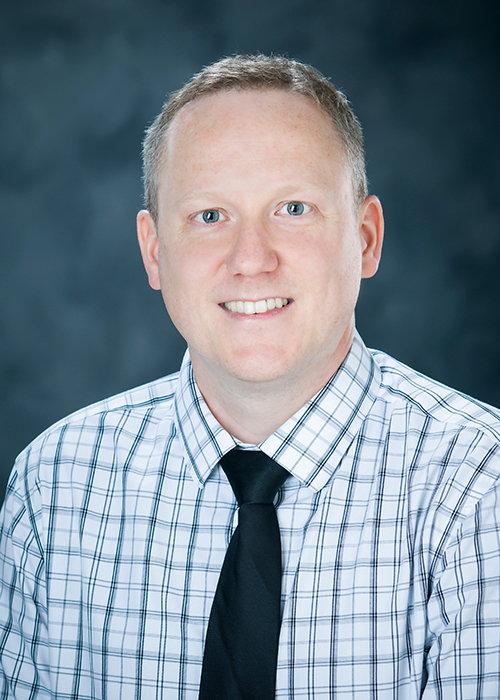NSF Career Grant recipient advances physics research, outreach efforts at MSU

Contact: Sasha Steinberg
STARKVILLE, Miss.—With help from a prestigious National Science Foundation Career Grant, a Mississippi State faculty member is working to advance his nuclear physics research and provide a new summer school experience for Mississippi students with Autism Spectrum Disorder.
As part of his more than $600,000 grant, MSU Assistant Professor of Physics Ben Crider is working on a study titled “Investigating shape coexistence near closed shells via lifetime measurements.” The goal of this study, he said, is to gain a better understanding of the atomic nucleus’s structure and work toward a predictive model of the atomic nucleus as a function of proton number, neutron number, and energy.
Crider said the NSF grant also has an educational outreach component, which can help expand the impact of his research project. He is collaborating with colleagues across campus to establish a residential summer school experience for young people with autism who are interested in science, technology and related fields.
Crider’s research project is jointly funded by NSF’s Experimental Nuclear Physics Program and the Established Program to Stimulate Competitive Research, better known as EPSCoR.
“My research gets at the heart of understanding how atomic nuclei with large or small proton-to-neutron ratios are put together, and the phenomena that emerge once they are together,” he said. “These ‘exotic’ nuclei can exhibit multiple shapes, but they are highly unstable and exist for a short amount of time before decaying, so producing them for study is difficult.”
Using decay spectroscopy and a variety of radiation detection systems at Michigan State’s National Superconducting Cyclotron Laboratory, Crider has been performing experiments to populate excited states in exotic nuclei to study this shape co-existence phenomenon.
During the educational weeklong outreach program, Crider foresees students participating in discussions and hands-on activities focused on various science topics, including his area of physics. Students could gain additional exposure to these topics through visits to different scientific facilities on campus and in Starkville. Crider said the primary goal of the summer program is to inform students of the “great resources that exist at a four-year university like Mississippi State.”
Crider said for many students with ASD, courses focusing on science, technology, engineering and mathematics (STEM) may be particularly appealing. By introducing students with ASD throughout Mississippi and the southeastern U.S. to a broad range of physics topics, including nuclear physics, Crider’s research project and outreach program can have impacts beyond basic science applications. Additionally, Crider hopes to utilize the summer camp to identify promising research students with ASD and further involve them in nuclear physics research.
“By engaging students who are part of this underserved population in physics, the opportunities of studying physics and performing research can be shown to a new generation of highly capable scholars,” he said.
Crider expressed particular appreciation for Dan Gadke, Kasee Stratton-Gadke and Julie Capella, who wrote letters of support for his NSF grant application and have provided feedback for the proposed summer school project. Gadke and Stratton-Gadke are co-founders and co-directors of the university’s Autism and Developmental Disabilities Clinic.
Gadke is head of MSU’s Department of Counseling, Educational Psychology and Foundations, and Stratton-Gadke is director of the T.K. Martin Center for Technology and Disability. Both are in the College of Education.
Capella is assistant dean of students and director of MSU’s Office of Student Support Services, home to the MSU ACCESS Program, Mississippi’s only post-secondary program for students with various intellectual disabilities, including autism.
“The Autism and Developmental Disabilities Clinic and the ACCESS Program at MSU are incredible,” Crider said. “I want to find more ways to engage with these programs and do other cross-departmental collaborations that can showcase really awesome things we’re doing here at Mississippi State.”
A native of Mechanicsville, Virginia, Crider holds bachelor’s degrees in physics and mathematics from the University of Richmond, as well as master’s and doctoral degrees in physics from the University of Kentucky. For more biographical information, visit www.physics.msstate.edu.
Learn more about MSU’s College of Arts and Sciences at www.cas.msstate.edu.
MSU is Mississippi’s leading university, available online at www.msstate.edu.